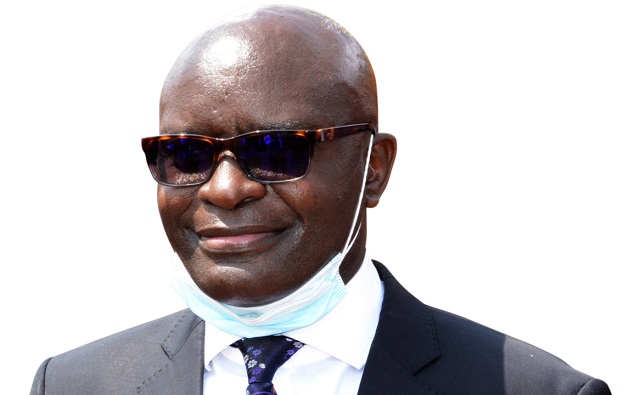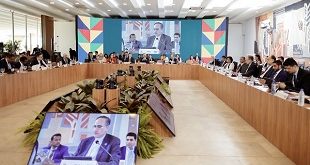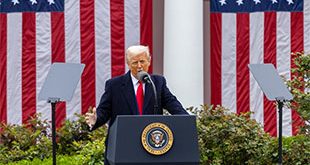
How unscientific reality is messing up ‘scientific election’
Kampala, Uganda | THE INDEPENDENT | On June 16 the Electoral Commission issued new guidelines for what has come to be known as “scientific elections”; a series of activities to be conducted mainly digitally via electronic media leading to the general elections scheduled for early 2021.
The crux of the guidelines is the EC’s ban of public campaign rallies. While announcing the guidelines, the EC Chairman, Simon Mugenyi Byabakama, said he was following expert guidance from the Ministry of Health.
“We have considered the need to preserve the health of the citizens vis a vis their constitutional and democratic right to elect leaders of their choice as guaranteed under the Constitution and come up with a plan that ensures minimal person-to-person contact during the implementation of the electoral process,” he said.
“The Commission will issue specific guidelines for each electoral activity under this revised Roadmap in due course and will engage with various stakeholders on the same,” he said.
But weeks later, the electoral process appears to have stalled. By this time, under the new EC 2021 election roadmap, political parties and organisations should have identified their flag bearers, sent their academic papers to the EC, and public servants aspiring to contest for Parliamentary elections should have resigned their positions. None of that has happened to a great extent.
And as time runs out, the EC is either unable to issue the guidelines it promised or is running into new unexpected obstacles at every stage.
The EC has been sued in the High Court by a public-spirited citizen who wants the court to quash the directives of EC of having scientific elections because they are illegal, vague, without any force of law, highhanded, and unfair. He says they violate his right to elect or be elected, participate in public affairs, and take part in free and fair elections. He says, by issuing the guidelines, the EC has usurped and hijacked the mandate of people and Parliament.
The EC is battling challenges by opposition politicians and parties who want the government to declare a state of emergency under Article 110 of the Constitution. They want the EC to trigger the process by declaring to President Museveni and Parliament that it is unable to conduct a “free and fair” election under the current COVID-19 tainted conditions.
But while Byabakama says he would gladly comply with a postponement under a state of emergence, he says it is not the mandate of his office to determine whether CIVID-19 is an emergency or not.
Meanwhile, with just a few months to the first series of elections according to the latest road map issued on June 16, the EC is yet to procure new Biometric Voter Identification kits, register candidates, procure printing of ballots, and recruit election officials. The EC is cramming into six months activities that took three years in previous election cycles.
The electoral process appears to have lost direction and become so entangled that many politicians and observers are demanding postponement of the elections for at least six months.
The main challenge for Byabakama appears to be that of a trust-deficit. Although Uganda has had regular elections every five years since President Museveni came to power in 1986, many have been marred by confusion, violence, and outright rigging.
Many observers say they want an electoral body that is strong and independent and can stand up to the incumbent as has happened in Kenya and Malawi. Many are also concerned that Byabakama is new on the job.
Since his appointment in 2016, Byabakama has overseen a few parliamentary by-elections but not a general election. There are concerns that his performance is being tested at the most trying moment, with the country in partial COVID-19 imposed lockdown as the pandemic wreaks havoc on the community, systems, processes, and institutions.
Byabakama has many times faced questions about his ability as EC boss. The questions he faced in a June 02 interview on NTV are typical. Byabakama was appearing as a guest with erstwhile member of Museveni’s inner circle turned presidential challenger, Lt. Gen. Henry Tumukunde. But it was questions from the host, Raymond Mujuni, which appeared to send the EC boss ducking and bobbing as the excerpts below show.
Qn: Mr. Chairman, I am going to ask you very specific questions about the efficiency of the Electoral Commission. Number one; do you have BVR kits for 36000 polling stations as you mentioned?
SM: You know technology… I am told what you used in 2016 is obsolete technology. So we are acquiring new technology in the area of BVS systems to ensure that voters are specifically identified.
Q: When you say new technology; does that mean new software or new laptops?
SM: I am not very conversant about technology; our technical people are there. I am no technology expert. But they have told me we cannot use the old system. They are old. So we have to acquire a new system.
Qn: Mr. Chairman, the other thing is the procurement of ballot papers. It is at the heart line of the election credibility. You had issued bids and at least three companies had expressed interest from what we gather. Which companies are those in all openness and transparency?
SM: Well, I don’t have the details. I don’t have any reason to cram the name of whoever has bid for which service.
 The Independent Uganda: You get the Truth we Pay the Price
The Independent Uganda: You get the Truth we Pay the Price



